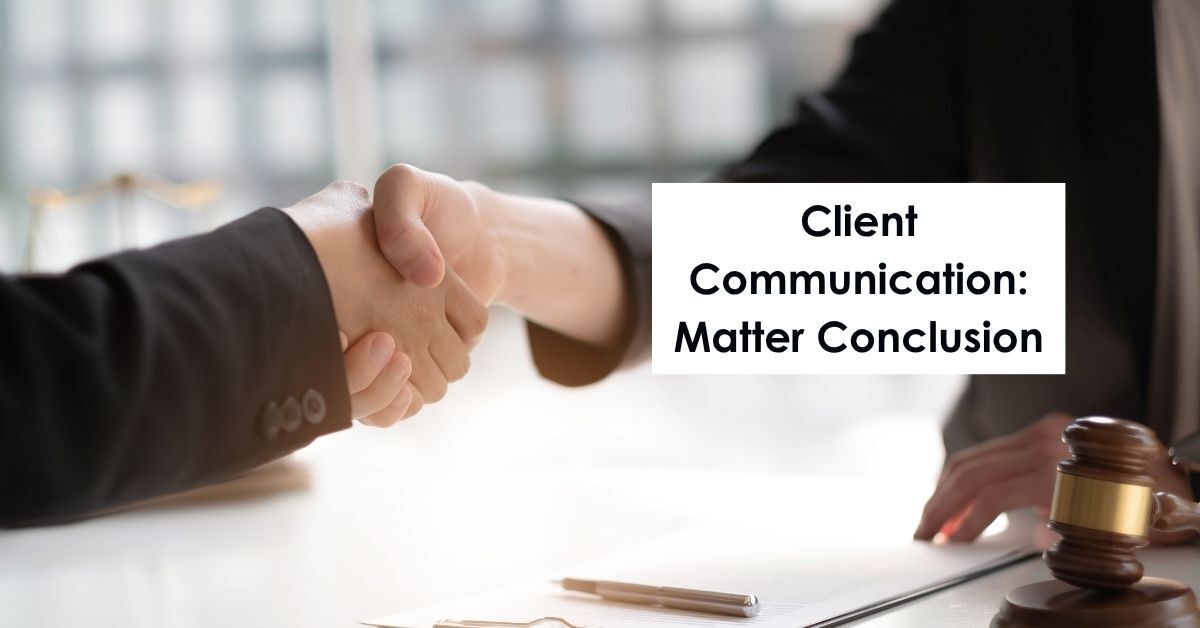Effective Writing Tips
We all get those messages that have us scratching our heads. They can be unclear for a multitude of reasons. Consider these tips to make your communication as effective as possible.
Purpose of the Message
What do you need to communicate? Identify the purpose of the message. If you have multiple purposes, consider the priorities of each. If you are unsure of the purpose, take a moment to rethink the message. A simple purpose, for example, is confirming a previously agreed meeting date and time. A more complex message is negotiating any topic at all. Clearly, the purpose needs to be succinct.
Focus on the purpose before you begin writing. If your can't summarize your purpose with one simple sentence, it's time to rethink the approach. Consider breaking the message down or picking up the phone.
Consider Your Recipient
Remember, as an attorney, you well understand the process. But your clients? Likely they are not as experienced as you. Not only that, they may have a high level of anxiety or stress due to their legal matter. Remembering your recipient and their state of mind is key.
Certainly, the information needs to be conveyed. Consider adjusting your typical approach based on the client needs. The law is clear and unbiased. But people? Well, we are a lot more complex. To the extent possible, adjust how you communicate.
Choose Words Carefully
Jargon, technical terms, or slang should be carefully monitored. The words you choose should be easily understood and commonly used. Certainly some topics require the use of legal terms. When required, be sure to provide a brief description. The description should be easily understood by a middle school student. That's a good target.
Certainly not all messages can be simplified. Consider if the message is best sent via email or text. Having a phone conversation may be more appropriate. To document the discussion, consider sending a follow-up email outlining the main points of the discussion.
Brevity is Key
Quite honestly, I can go the long way around to make a point very easily. My family actually makes fun of me for it. I tend to start at the very beginning of the notion to show my thought process and ultimate decision or point I'm trying to make. Frankly, I over explain. Sometimes, a simple two sentence statement is all that is required.
Consider the information you include in your message. If it's important background information that further describes the issue at hand, by all means, include it. But consider if, or how much, is really necessary. If the email is more than two paragraphs, consider picking up the phone.
Proofread Your Message
Sometimes we love autocorrect. Sometimes, not so much. When writing, we clearly understand our message. Going back to read it can uncover points that need better structure, flow, or punctuation. Proofread your messages to ensure the point you are making is getting across in a succinct and easy to understand manner.
Not a great writer? Consider a second set of eyes. If having a proof reader isn't appropriate, consider using a plug-in tool like Grammarly or Hemingway, as examples. There are some great tools out there that not only provide suggestions when writing but also teach you along the way.
Clear, concise communication is key for everyone but particularly for attorneys. As they say, practice makes perfect. Use these five tips to help your writing be as effective as possible.


